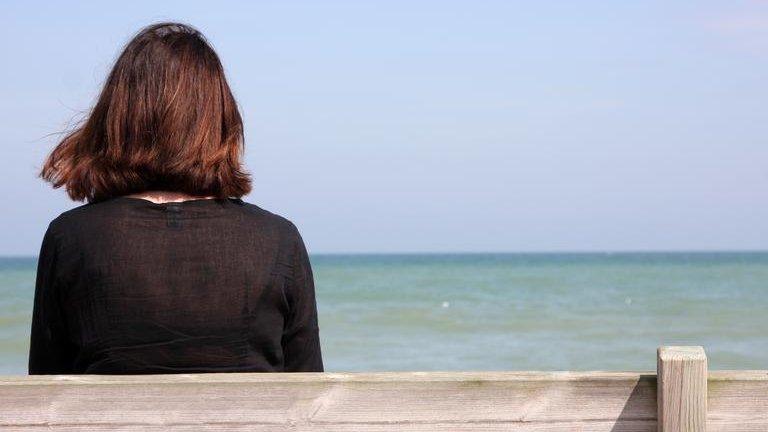Woman denied abortion 'attempted suicide over termination costs'
- Published
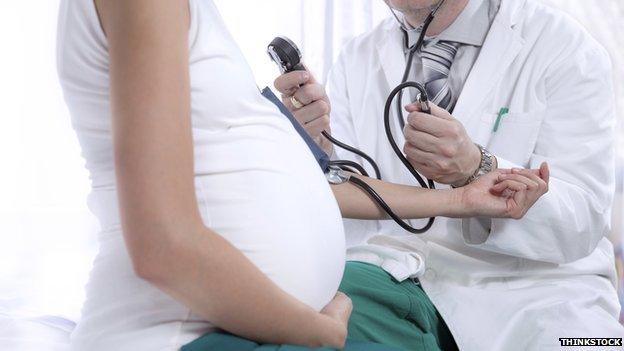
The young woman, who cannot be named due to a court order protecting her identity, spoke anonymously to the Irish Times newspaper
A teenage rape victim has told an Irish newspaper she tried to take her own life because she did not have the money to leave Ireland for an abortion.
The suicidal young woman gave birth to a baby by Caesarean section earlier this month, after she was refused an abortion in the Republic of Ireland.
The foreign national had been raped in another country and found out she was pregnant during immigration checks.
She spoke about the barriers she faced accessing a legal abortion.
The case has placed the spotlight on the operation of the Republic of Ireland's new abortion legislation, under which the credible risk of suicide is grounds for access to a legal termination within the state.
'Travel costs'
Kitty Holland, the Irish Times journalist who met and interviewed the young woman, external, said the teenager could not speak English and had no money and very little family support.
"She found out she was pregnant when she first came into the country," Ms Holland told BBC Radio Ulster's Talkback programme.
"She had a medical check-up as part of her immigration application process and at eight weeks and four days [pregnant] she said she couldn't bear to carry this child because it was a pregnancy as a result of rape."
Ms Holland said the woman was referred on to an Irish Family Planning Association (IFPA) clinic and began a series of counselling sessions.
The woman told the Irish Times that she was given advice about travelling to England for abortion, including exit and re-entry visas and was "anxious" to apply for the documents to leave the country for a termination.
However, when she reached 16 weeks in her pregnancy, she began to worry about time limits as she still did not have travel documents.
'Absolute despair'
"It was at this point she was advised about the costs involved for her. She would have to come up with - she was told - up to 1,500 euros (£1,200) to cover the cost of travel, accommodation and the termination itself in England.
"At that point she seems to have really felt that financial obstacle was absolutely insurmountable for her and really hit a stage of absolute despair," Ms Holland said.
"She was getting increasingly distressed about the pregnancy and she told me that, at that point, she decided that her only way out, given the costs and the lack of a visa, was to take her own life."
The woman told the paper she was interrupted during a suicide attempt at her shared accommodation.
After spending days alone and withdraw in her room, she then requested a transfer to new accommodation.
'Serious trouble'
Ms Holland said that at 21 weeks into her pregnancy, a family friend advised her to make a GP appointment and to tell the doctor she was suicidal.
"The GP obviously recognised that this was a woman in serious trouble and he referred her straight that day to a psychiatrist in the nearby hospital."
Ms Holland said that when the teenager was brought to a maternity hospital and was told that she was 24 weeks pregnant, initially she was told she could not have an abortion, that her pregnancy was too far progressed.
The reporter said at that point the teenager "got extremely distressed" and went on a thirst and hunger strike, saying she no longer wanted to live.
"At that point the HSE went to the High Court to get an order to rehydrate and to feed her," Ms Holland said.
The woman alleged to the paper that she ended her hunger strike when staff at the hospital told her she could have an abortion, but needed to be strong for the operation.
'Multiple barriers'
However, she said she was then told it was too late to perform an abortion and felt that "her only option" to end her pregnancy was a Caesarean section.
Ms Holland said the young woman was still in "huge distress" and feels that she was not listened to.
A spokeswoman for the IFPA confirmed the woman was one of their clients but that they were unable to comment on individual cases because of client confidentiality.
However, in a statement, it said that "no conclusions can be drawn on the issue of when and to whom the young woman expressed suicidal thoughts/feelings to".
It added that "all clients attending for pregnancy counselling services receive information on all of the options open to them".
"The IFPA is experienced at dealing with women and girls in a crisis pregnancy situation who have arrived in Ireland seeking asylum," it said.
"Those seeking an abortion can face multiple barriers which can significantly delay their travel. These include financial, legal and bureaucratic barriers.
"The organisation has consistently - and for some time - raised concerns to the relevant authorities about women and girls in this situation."
- Published19 August 2014
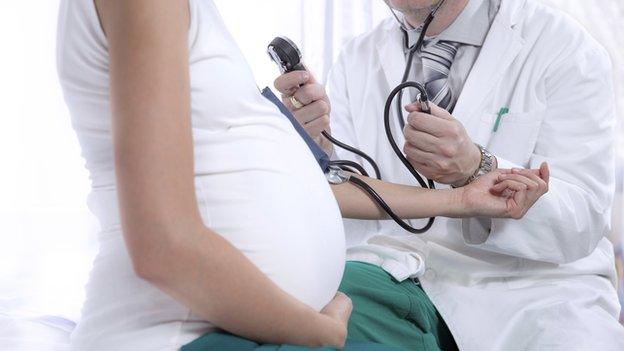
- Published18 August 2014
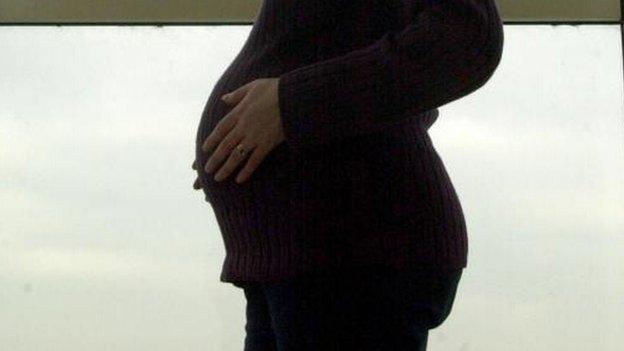
- Published18 August 2014

- Published17 August 2014
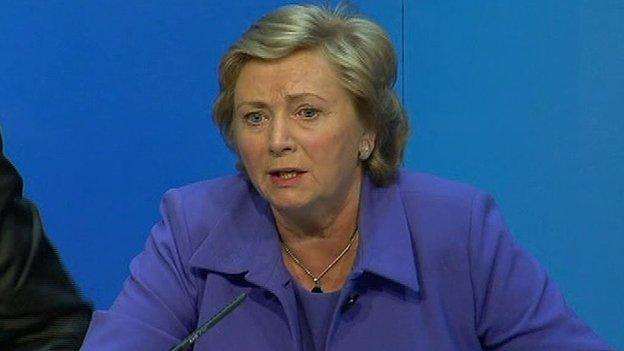
- Published16 August 2014

- Published1 January 2014
